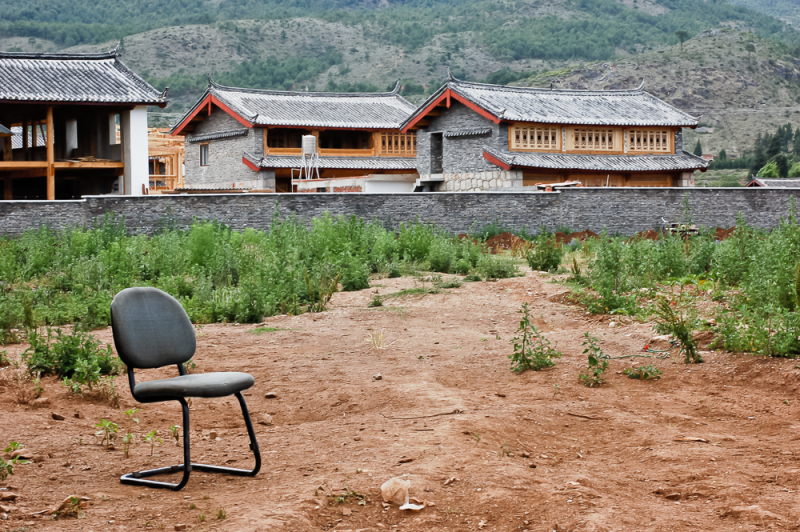Television And The Changing Role Of The Expert
A lot of people are saying this is a golden age for television. When you think of the quality of some of the best best shows, The Sopranos, The Wire, Breaking Bad, Homeland, Mad Men, Game of Thrones, it doesn’t feel like much of a boast really. It’s no surprise then that TV is pulling […]

A lot of people are saying this is a golden age for television. When you think of the quality of some of the best best shows, The Sopranos, The Wire, Breaking Bad, Homeland, Mad Men, Game of Thrones, it doesn’t feel like much of a boast really. It’s no surprise then that TV is pulling in established names, directors and actors from the movie industry, who repeatedly say that in an age of reboots, CGI Blockbusters and endless Comic Book adaptations, TV audiences seem more willing than mainstream film audiences to engage deep, challenging and complex stories.
“Television [is] this wonderfully rich place for really dynamic complex, bold, female characters. I’m very proud to be working in this medium in this moment…”
– Claire Danes
A Wise Voice Of Critical Dissent
As wonderful as television drama is right now, can the same lofty claims be made for the rest of what television offers viewers. In a recent interview with The Guardian, the BBC’s David Attenborough, best known for a long and outstanding career making nature documentaries, questions whether television is offering us the diversity and quality of programming we might expect.
“The sad thing is that you’d think that the more stations there are, the more varied the output, but the practice is the reverse – the more you get, the more similar they become. And you get genres that become the flavour of the month.”
It’s hard to disagree with Attenborogh. While this is a golden age for television drama, the same cannot be said for other genres, like comedy, news or more particularly, the focus of much of Attenborogh’s career, documentary series.
“The general view is that viewers don’t like people coming along and saying they know more about it than you do, so it’s unfashionable…”
The Changing Role Of The Expert
For a long time, especially in the UK, the template for TV documentary series was an expert’s take on a big topic. Attenborough mentions the acclaimed Kenneth Clark’s Civilisation and when I remember back to the TV documentaries that have stood out for me, especially in my younger years, shows like Cosmos with Carl Sagan, The Undersea World of Jacques Cousteau, The Body in Question with Jonathan Miller, Robert Hughes’ The Shock of the New and of course Attenborogh’s own The Blue Planet.
While these kind of shows still get made, as Attenborogh points out, they seldom get the chance to develop into longer series, up to say 13 parts, instead being formatted into shorter, 3 or 4 part formats. What Attenborogh doesn’t mention is that a lot of the best rating documentaries today are actually hybrids, blending the aims of documentary with more of a reality TV aesthetic and dynamism, which drives shows like Deadliest Catch and MythBusters.
But, the expert is not totally gone from our screens, either on TV or online. YouTube has a whole economy of experts with strong subscriber numbers, from TEDtalks, to specialist channels for pretty much every area of human activity and expertise.
And, if one field in particular has surged in popularity over the last decade it is cooking. Audiences seem to have an almost unending appetite, so to speak, for the expert in the kitchen, showing us how to cook food!
Consider The Cookbook
Perhaps we can understand this better by considering the way cookbooks have changed. Grab any cookbook from the 80s or earlier and you will see a big difference with today’s style. Not every recipe has a matching photo and when the recipes are photographed, the images are flat, less adorned and styled and in every way, less sexy. The recipes themselves have less explanation, often assuming an understanding of both the ingredients and techniques involved. And finally, there is often a complete lack of the kind of light and personal text we find at the top and tail of each recipe, which ttys to sell us on what a fun experience cooking and eating each recipe will be.
Fascinatingly, in many parts of the world, while bookstores seem to be shrinking, both in terms of size and diversity of the books they offer, cookbooks are becoming more and more prominent. It’s not uncommon to walk into bookstores now where cookbooks take up more shelf space than literary fiction.
Has The Expert Become Our Expert?
OK, maybe you don’t really care about television, musty old documentary series, celebrity chefs or cookbooks. But, if Attenborogh is right (and I believe he is), this changing social dynamic matters for anyone whose job requires them to trade off expertise.
Which is, of course, almost everyone engaged in creative work!
The best way I can explain this changing dynamic is that audience expectations have shifted from “tell me” to “help me.” This reflects a broader shift to the more personal in everything from education to workplaces, as we expect to have more and more individual control over the way we dress, the content we consume and even the way our tools (especially software) behaves.
Expecting the world to care about us, simply because we have a lot of experience and a body of work, is going to become an increasingly risky strategy. I believe this is why so many creatives I talk to are struggling to get any traction with their blogs or on social media. Moving from “tell me” to “show me” is good. But pushing out further, to “help me,” is even better.




